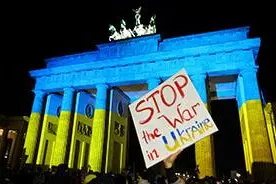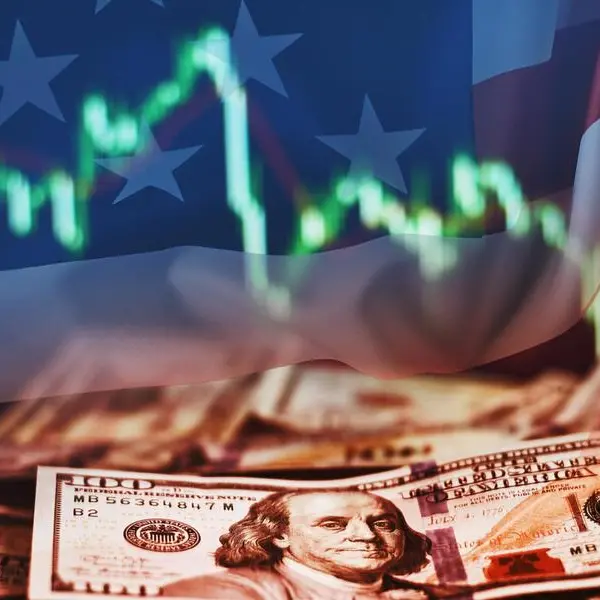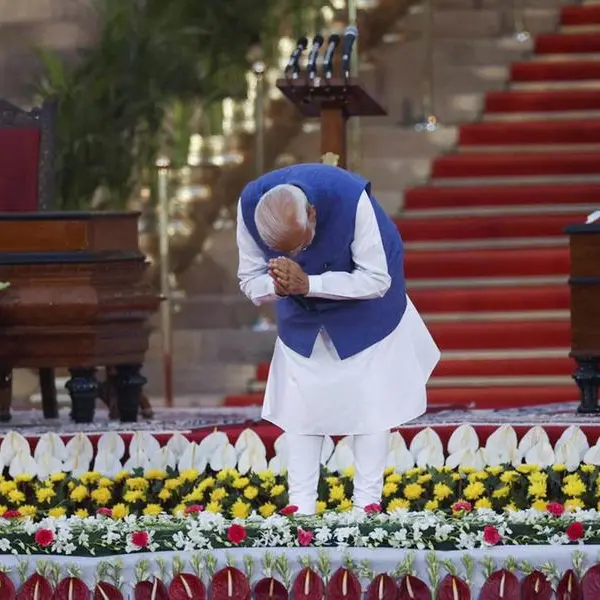PHOTO
Once again, Ukraine finds itself invaded. This flat, fertile land has proved so tempting to invaders over the centuries, as anyone with even a sketchy knowledge of its history will understand. Russia, Germany, Poland and others have in the past fought over it and divided it. That sense of Ukraine once again being abandoned was summed up perfectly when President Volodymyr Zelensky responded to America’s offer to evacuate him from Kyiv: “The fight is here; I need ammunition, not a ride.”
So, will the “West” ride to the rescue and help save Ukraine? Or will hopes be raised and then dashed, as happened in Syria?
Let us be clear. This is a war that should never have happened. Russia is now discovering a more united response to this than perhaps it was expecting. This is a war that could have been thwarted if Europe and the US had collectively stood up to Russia not in the last few weeks, but over the last decade.
For too long, European nations and the US ignored the dire warnings and pleas of the Eastern European and Baltic states, which understood all the signs. Western European states did nothing to prepare for this. Many in the Middle East may echo that sentiment: That Western states have been ignoring the outside world.
Russia invaded and occupied a part of Ukraine, the Crimean Peninsula, in 2014. It also stirred things up in the Donbas region. The resulting sanctions were far too weak to send any other message to Moscow than that Europe will do nothing and does not have the stomach to stand up to it. Kicking Russia out of the G8 was not troublesome.
Europe did nothing. Where was the red line? There was not even a pinkish line, even after Crimea. Far from taking the threat seriously, most European states were content to relax under a NATO umbrella that was increasingly US-dominated. Successive American presidents had complained that its NATO partners were not contributing their fair share. Only now has Germany announced that it will spend 2 percent of its gross domestic product on defense.
But Germany is not the only one to blame. London, in particular, has been swimming in dirty Russian money and has become the playground of the oligarchs. Different sources place the number of Kremlin-linked billionaires based in the UK at between 30 and 50. Many of them have donated to the ruling Conservative Party. US officials have been scathing about the UK’s continued failure to tackle this issue. Nothing was done even after the assassination in the heart of London of Alexander Litvinenko in 2006, using one of the most toxic substances on the planet, polonium-210, or after Russian GRU agents attempted to murder Sergei Skripal using a Novichok nerve agent in Salisbury in 2018. Not enough was done to hold the perpetrators of either of these crimes accountable.
Perhaps most remarkable of all was the reaction to the report of the UK Parliament’s Intelligence and Security Committee in 2020. It found that the government had done nothing to investigate claims of Russian interference in the Brexit referendum in 2016.
Britain has now ramped up its sanctions, but these oligarchs have yet to be touched. Every day that passes until that happens allows them to move their assets and funds to safer locations.
Far-right politicians in Europe, such as Marine Le Pen in France and Matteo Salvini in Italy, were only too happy to embrace Vladimir Putin. The far left also frequently ignored Russia’s actions, not least in Syria.
Why did so many choose to turn a blind eye? One could argue it was a failure of imagination; that too many just could not believe that, in the 21st century, a nation state would invade a sovereign neighbor. There are too many with their heads deep in the sand.
But is this era over? Even if it was too late, Europe and North America are reacting. For years, the term “the West” was largely a fiction, yet this crisis will encourage these countries to reenergize the Western bloc, which was always a sleeping giant.
Ever since the end of the Cold War, NATO has been scratching around for a new raison d’etre, a revised mission. Russia, contrary to its own interests, has just given the military alliance a new lease of life. NATO may even expand. The EU is set to supply weapons directly to Ukraine, the first time it has made such a move in its history. Germany has abandoned its non-interventionist posture and Sweden appears to be ditching neutrality.
European states will be increasing their military budgets and the US, rather than pivot to Asia, may revert to Europe. Germany has announced it will be diversifying its energy resources, including building two liquefied natural gas terminals, having suspended its approval of the Nord Stream 2 pipeline from Russia.
Companies are also having to make tough decisions, hence the major oil company BP dropping its 20 percent stake in Russia’s state-owned oil and gas company Rosneft. And what seemed impossible only a week ago has happened: European states have cut off the Russian central bank and kicked other key Russian banks out of the SWIFT financial messaging system.
The most optimistic outlook is that Russia has woken up the West and that its various constituent states will revisit how they work together and support their allies. Will they back up the eroding international order and rules-based system? There will be some painful costs, but nothing like what the Ukrainians are experiencing right now.
The Russian leadership should take note. The West’s indecision and inaction masks its overwhelming military, economic and diplomatic superiority over Moscow, whose economy is only a bit bigger than Spain’s. The reality is that Russia will not overcome a united US-European alliance. The question is whether this unity and decisiveness will last. Ukrainians will hope so.
- Chris Doyle is director of the London-based Council for Arab-British Understanding (CAABU). Twitter: @Doylech
Disclaimer: Views expressed by writers in this section are their own and do not necessarily reflect Arab News' point-of-view
Copyright: Arab News © 2022 All rights reserved. Provided by SyndiGate Media Inc. (Syndigate.info).





















